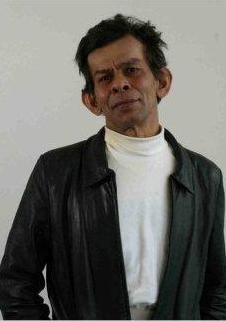A Guyanese man is part of a class action lawsuit that is alleging bias by Queens, New York judges in the denial of disability benefits.
A report in today’s New York Times said that the Queen’s office that hears appeals of social security disability cases is known as an inhospitable place for those seeking benefits.

The report said it has had the 10th-highest rejection rate among 166 offices across the country this fiscal year. Lawyers say that many applicants have been reduced to tears by harsh questioning from the administrative law judges who hear the appeals. The NYT said that some lawyers have even advised their clients to rent apartments or move to homeless shelters in other areas so they can plead their cases there instead of in Queens.
One plaintiff in the lawsuit, Dhanasar Raman, a Guyanese who worked for 26 years in a factory that made machinery to produce zippers, says that he cannot walk straight or sleep through the night as his neck involuntarily twists to the side because of cervical dystonia. He says he also has seizures.
The judge in his case denied him benefits, saying that Raman was not credible because he had not sought physical therapy or narcotics for pain even though his doctors did not prescribe them. “She disrespected me,” Raman said in an interview with the NYT. “When you talk to her, she doesn’t want to hear anything.”
Raman’s lawyer, Ann Biddle, told the NYT that Queens administrative law judges often discriminated against the foreign-born applicants, who make up about half of the borough’s population.
“There’s an inappropriate focus on the fact that they’re foreign-born and how they came to this country, and a real skepticism that they were able to survive without becoming fluent in English,” said Biddle, the deputy director of Queens Legal Services, said in the NYT report.
The lawsuit contends that the judge made several errors in her ruling: She improperly discounted the treating physician’s conclusions and ignored the severity of Raman’s muscular problems.
The NYT report says that federal judges have rejected many of the Queens rulings in recent years, complaining of legal errors and “combative” hearings.
The class-action lawsuit says that five of the eight Queens judges are not just difficult, but also biased against the applicants.
“They are not calling cases down the middle,” said Jim Walden, a partner at the firm Gibson, Dunn & Crutcher, which is handling the suit pro bono, with the Urban Justice Center. “They are being extremely heavy-handed with some of the most vulnerable people you could ever meet.”
The suit could affect thousands of others in Queens, including many Guyanese, who have been denied benefits. The NYT said it seeks to bar the five judges from hearing any more claims, and to annul all their decisions since 2005 to deny benefits.
The five judges named in the suit are David Z. Nisnewitz, Michael D. Cofresi, Seymour Fier, Marilyn P. Hoppenfeld and Hazel C. Strauss.
The NYT says that together, the five have rejected an average of 63 percent of the cases they have heard in the fiscal year that began in September, compared with a national average of 36 percent.
D. Randall Frye, president of the Association of Administrative Law Judges, told the NYT that allegations of bias were generally sour grapes from clients who failed to receive benefits, and from lawyers who get paid only if they win. He added that the adversarial tone cited in the lawsuit was common in disability offices, and “part of the process.”
However, federal judges who have reviewed the Queens cases have disagreed. In remanding a 2005 case, Judge Dora L. Irizarry said the transcript offered “a study in combative questioning, which hampered the truth-seeking process.” Judge Irizarry’s name is well-known to the Guyanese public as she presided in the case of drug trafficker Roger Khan and those of other Guyanese indicted in New York in recent years.




